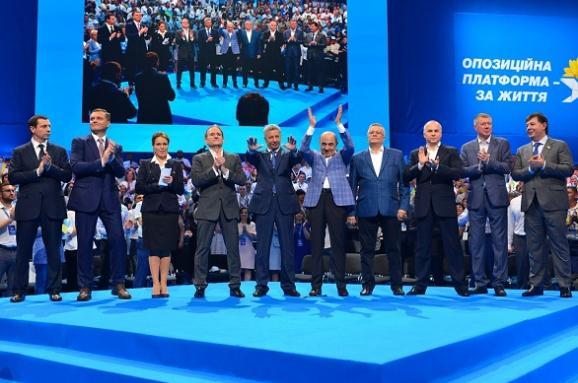Despite the overall positive impact and the enthusiasm of some Ukrainian social networks, Ukraine's recent sanctioning of three TV channels linked to pro-Russian politician Viktor Medvedchuk does not mean pro-Russian politicians or projects have lost their influence in Ukraine.
Ukraine sanctions TV channels of Putin’s top-tier ally in Ukraine. Here is what they broadcasted
Media-wise, the most potent threat posed by these three media irritants does not lie in their favorable presentations of the Russian Federation, and thus, blatant manipulation of public opinion, but in methodical torrents of disinformation and conspiracy theories.
Experts state that the number of viewers pf the channels and their ratings are way lower than the level of support for the pro-Russian party Opposition Platform-For Life (whose ratings currently hover at around 17% of voters who made up their minds). Therefore, they cannot be considered as a crucial channel of political influencing.
In addition, from a commercial point of view, these channels are completely unprofitable as advertising revenues do not cover production expenses.
To understand the strategic purpose of such pro-Russian media projects in Ukraine, it is worth reading the "White Paper," a strategic document recently released by the Foreign Intelligence Service of Ukraine, which analyzes the far-reaching strategy and tactics of Russia's influence on Ukraine through a number of key dominants. This report states the following:
- at present, Russia does not have enough resources to use force in the implementation of a “final solution to the Ukrainian question”;
- Russia’s policy vis-à-vis Ukraine is aimed at implementing a long-term strategy for the destruction and eradication of the “Ukrainian state project.”
These objectives can be achieved through disinformation, reflexive control (maskirovka) – diffusing false information in order to sway public opinion, spreading despair, hostility, and eroding national consensus.
We should not overestimate the importance of the sanctioning of three TV channels - this eliminates only part of the problem with pro-Russian projects in Ukraine.
Politically speaking, there are a number of pro-Russian politicians in Ukraine that might be significantly strengthened by Medvedchuk's weakened position caused by the ban of his channels.
Most of them view Viktor Medvedchuk’s discourse as too aggressive. His media resources make extremely radical assessments of events in Ukraine, especially in Ukraine’s relations with the United States and the country’s war with Russia. Medvedchuk’s media pool is sometimes half-jokingly half-seriously referred to as not pro-Russian, but simply Russian.
One of these politicians is Medvedchuk’s colleague from the Opposition Platform - For Life (OPFL) party - Serhiy Lyovochkin, the former head of President Yanukovych's administration who was one of the most influential politicians in the now-extinct Party of Regions, headed by Yanukovych.
It should be noted that Medvedchuk was not a member of the Party of Regions or a party functionary under Yanukovych or earlier. Despite close ideological ties to OPFL and his status as Vladimir Putin’s “compadre” (Putin is the godfather of Medvedchuk's daughter), Medvedchuk was in no hurry to join this faction.This could be partly due to a personal conflict with Serhiy Lyovochkin.
No, Putin’s compadre shouldn’t be allowed to run propagandist TV in Ukraine
The day after the TV channels were shut down, Medvedchuk, who chairs the political council of the OPFL, called on all OPFL MPs to get together and protect party interests at the Verkhovna Rada session, but Serhiy Lyovochkin failed to show up.
Lyovochkin is very close to the pro-Russian oligarch Dmytro Firtash and owner of one of the largest Ukrainian TV channels - Inter.
In addition, we can reasonably assume that Lyovochkin is linked to some groups of influence under the pro-Russian oligarch Dmytro Firtash, but there is no point in speculating over who is more important in this relationship.
Previously, Inter had some problems with their Russian propaganda-style coverage of the May 9 celebration, and some questions about the extension of their license in Ukraine. In addition, this Ukrainian TV channel was co-founded in 1996 by ORT (Russian Public Television), which today is a mouthpiece for the Russian government.

Although Medvedchuk’s TV channels were banned after being accused of funding from businesses from the occupied territories in the Donbas, it is very unlikely that the Lyovochkin-Firtash media group and Inter TV channel will run into similar difficulties in the near future.
Given that the media resources controlled by Serhiy Lyovochkin’s rival group wield much more power in Ukraine, the future of the pro-Russian project in Ukrainian politics will clearly not lie in Medvedchuk’s hands. In fact, a much more flexible line will be chosen for the pro-Russian movement in the future, but it will be more post-Soviet-paternalistic than Slavophile-conspiratorial.
All the while, Medvedchuk’s position may be placed under direct threat due to the slow disintegration of Russian state mechanisms and hypothetical internal conflicts in Russia. Medvedchuk is, in fact, a direct beneficiary of Russian funds for most of his political activities.
Although the Lyovochkin-Firtash group also benefits from Russian protection, its companies have a monopoly on the gas distribution business, which generates huge profits and ensures autonomous financing.
Therefore, although some pro-Russian media resources have been shut down, we cannot say that there has been a historical change in Ukraine’s information space or that the Ukrainian media community has been cleared of pro-Russian influence.
Nonetheless, it is highly important to continue fighting against such powerful sources of disinformation disseminated daily among the Ukrainian population.

Read also:
- Where Putin’s media-wielding men in Ukraine get their money
- No, Putin’s compadre shouldn’t be allowed to run propagandist TV in Ukraine
- Ukraine sanctions TV channels of Putin’s top-tier ally in Ukraine. Here is what they broadcasted





